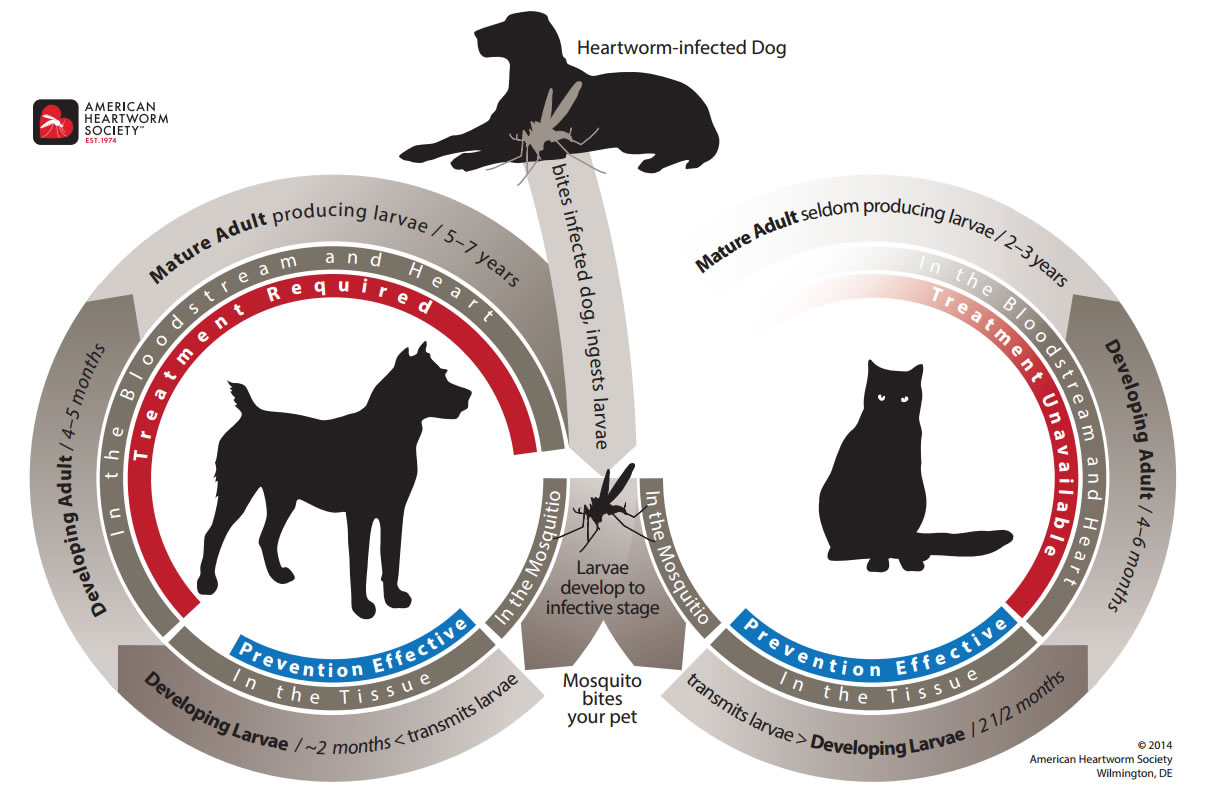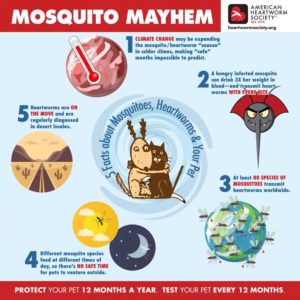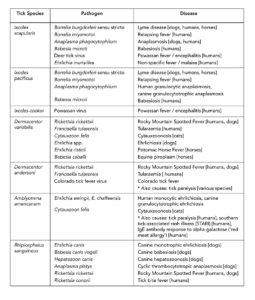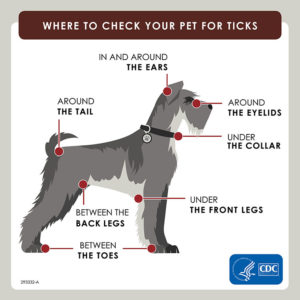Heartworm Basics - American Heartworm Society

What is heartworm disease?
Heartworm disease is a serious and potentially fatal disease in pets in the United States and many other parts of the world. It is caused by foot-long worms (heartworms) that live in the heart, lungs and associated blood vessels of affected pets, causing severe lung disease, heart failure and damage to other organs in the body. Heartworm disease affects dogs, cats and ferrets, but heartworms also live in other mammal species, including wolves, coyotes, foxes, sea lions and—in rare instances—humans. Because wild species such as foxes and coyotes live in proximity to many urban areas, they are considered important carriers of the disease.
Dogs. The dog is a natural host for heartworms, which means that heartworms that live inside the dog mature into adults, mate and produce offspring. If untreated, their numbers can increase, and dogs have been known to harbor several hundred worms in their bodies. Heartworm disease causes lasting damage to the heart, lungs and arteries, and can affect the dog’s health and quality of life long after the parasites are gone. For this reason, heartworm prevention for dogs is by far the best option, and treatment—when needed—should be administered as early in the course of the disease as possible. Learn more about heartworm medicine for dogs.
Cats. Heartworm disease in cats is very different from heartworm disease in dogs. The cat is an atypical host for heartworms, and most worms in cats do not survive to the adult stage. Cats with adult heartworms typically have just one to three worms, and many cats affected by heartworms have no adult worms. While this means heartworm disease often goes undiagnosed in cats, it’s important to understand that even immature worms cause real damage in the form of a condition known as heartworm associated respiratory disease (HARD). Moreover, the medication used to treat heartworm infections in dogs cannot be used in cats, so prevention is the only means of protecting cats from the effects of heartworm disease.
Heartworm Here in Ontario

We’re well into Heartworm season now, and if you haven’t had a chance to book your heartworm test, and pick up your prevention, now is the time! Give us a call, and we’ll get your appointment set!

Ticks Are Active!

Above is a quick reference guide to ticks most commonly found on companion animals and the pathogens which they can transmit. Thankfully with the wonderful selection of effective preventives, many of these diseases are mitigated by their fast-acting nature. If you aren’t already set up with a product, give us a call, and we’ll get your pet protected!
Even with product on board, it’s important not to skip your tick checks. A quick once over after a trip outside should be a routine part of your day. Be sure to hit the hotspots!
**It’s important to note that pathogen infection prevalence of ticks can vary significantly by geographic area, so the information provided below does not imply that those pathogen are present in all areas with those tick populations.

